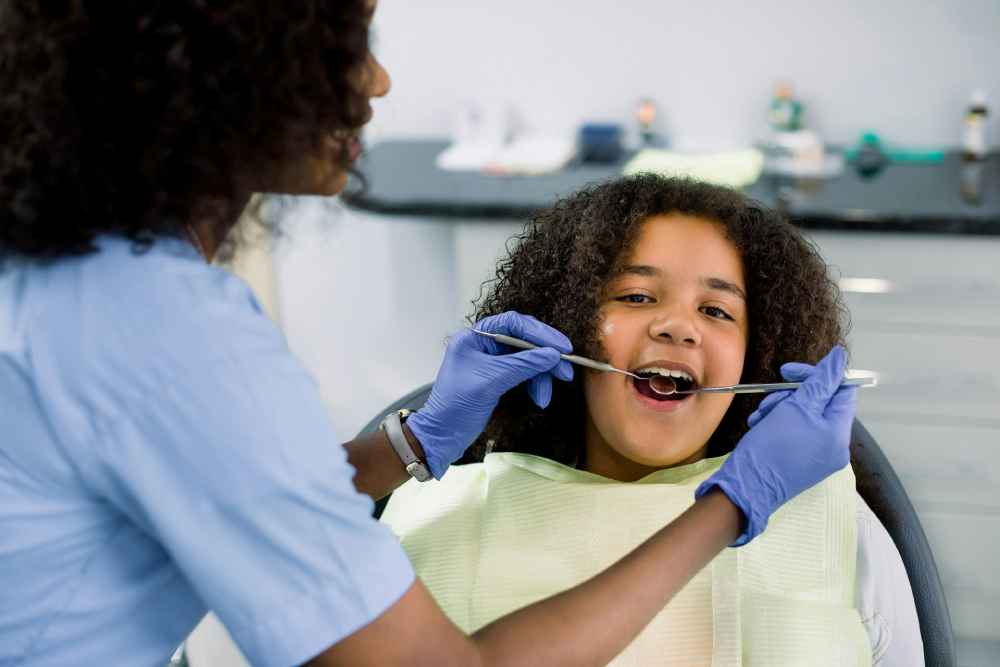Navigating pediatric dental hygiene is paramount for parents, who must ensure their child’s oral health from an early age. This comprehensive guide delves into the significance of establishing proper dental care routines, addresses common concerns, and provides essential tips for maintaining a healthy smile.
By understanding the importance of pediatric dental hygiene, parents can lay the foundation for a lifetime of good oral health and foster habits that promote overall well-being.
Understanding Pediatric Dental Health
The formation and maintenance of a child’s primary teeth are more than just steps in their development; they are the cornerstone of oral health, impacting their current well-being and future as adults.
Here, the first interactions with a pediatric dentist can set the tone for lifelong dental hygiene practices. Early detection and treatment of oral health disorders is essential to ensure a smooth and less complicated transition from baby to permanent teeth.
Since primary teeth provide room for adult teeth that eventually occupy them, maintaining their health is essential. Neglecting these early teeth can lead to crowding or misaligned permanent teeth, necessitating costly and invasive corrections in the future.
Pediatric dentists provide care tailored to young patients, making them a valuable resource throughout a child’s early years.
The Role of Nutrition in Dental Well-being
A child’s diet dramatically influences their oral and dental health. Foods high in calcium and phosphorus, essential minerals for enamel strength, help fortify teeth against decay and cavities. Vitamins, especially A, C, and D, promote oral health, with vitamin D mainly supporting the body’s calcium absorption and promoting gum health.
Monitoring how much sugar and starch kids eat is essential since oral bacteria can break them down into acid that erodes tooth enamel.
A child’s dental health can be significantly improved by eating a balanced diet that minimizes sugary snacks and includes entire meals like fruits, vegetables, and lean meats. Emphasizing the importance of nutrition from a young age can instill habits that support a lifetime of healthy teeth and gums.
Establishing a Dental Routine for Children
The importance of establishing a dental routine for children cannot be overstated. Preventing cavities and gum disease primarily depends on brushing for two minutes twice daily, using a pea-sized amount of fluoride toothpaste, and flossing once daily.
Pediatricians and dentists recommend that children begin dental care practices when their first tooth appears—usually around six months.
Creating a positive environment for dental care at home can include involving kids in selecting their dental care products, such as letting them pick out their toothbrushes. Parents can also use timers or play songs to ensure their children brush adequately. The goal is to make dental hygiene an expected and, ideally, enjoyable part of their daily routine.
When to Start Dental Visits
Visits to the dentist’s office should commence as a child’s first tooth appears—a milestone typically occurs around six months to one year. These initial visits serve as educational opportunities as much as they do for dental assessment.
This is when parents can learn about dental milestones, teething, proper care for baby teeth, and the impact of habits like thumb-sucking. It’s a time for infants to become acquainted with the dentist’s office, reducing fear and anxiety as they grow older.
Common Pediatric Dental Procedures
Standard procedures in a pediatric dental office include prophylactic cleaning and fluoride treatments that help protect teeth against cavities. Sealants may also be applied to the deep grooves in children’s teeth to prevent decay.
In the event of cavities, composite fillings, which match the color of the teeth, are typically used to repair the affected area. For more extensive procedures, modern techniques and sedation options have made treatments more comfortable for young patients.
Dealing with Dental Anxiety in Children
It’s not unusual for children to experience apprehension regarding dental appointments. Preparation is vital in helping a child overcome dental anxiety. Parents can reinforce positive perceptions by using age-appropriate books and videos to discuss what happens during a dental visit.
Role-playing at home, practicing opening their mouth for a “tooth count,” can also make the experience less intimidating. Additionally, a dentist whose practice is focused on children will have strategies and facilities specifically designed to create a soothing environment for their young patients.
Fun Facts About Teeth to Share with Kids
Enticing children’s interest in their dental health can be as simple as sharing fascinating facts about teeth. For example, the set of teeth one has as a child are placeholders for the adult teeth one will have later in life.
Another interesting tidbit is that enamel, which protects teeth, is the hardest substance in the human body. Kids may also be fascinated to learn that, like fingerprints, everyone’s teeth are unique—even identical twins have different bites!
The Financial Aspect of Pediatric Dentistry
Understanding the cost implications of dental care is essential for families. Many dental practices offer financial planning services or payment plans to accommodate various budgets. Dental insurance plans often cover annual check-ups and preventative procedures at little to no cost.
Moreover, the financial commitment to preventive care in childhood can lead to reduced expenditure on dental health in the future, as proactive measures can negate the need for more severe treatments.
Technological Advances in Pediatric Dentistry
Innovations in pediatric dentistry have made significant strides in making treatments less invasive and more comfortable.
For instance, digital radiography exposes children to less radiation than traditional X-rays and provides immediate images for faster diagnosis. Lasers used in cavity detection can find decay without probing, making the procedure less scary and more tolerable for youngsters.
Establishing Long-Term Dental Health Habits
Children with a strong foundation in oral care are more likely to continue those practices into adulthood. Empowering kids with knowledge about their oral health can motivate them to take the initiative to maintain it.
When paired with the guidance of caring dental professionals and supportive family environments, oral health education lays the groundwork for children to develop a positive relationship with dental care for their entire lives.





